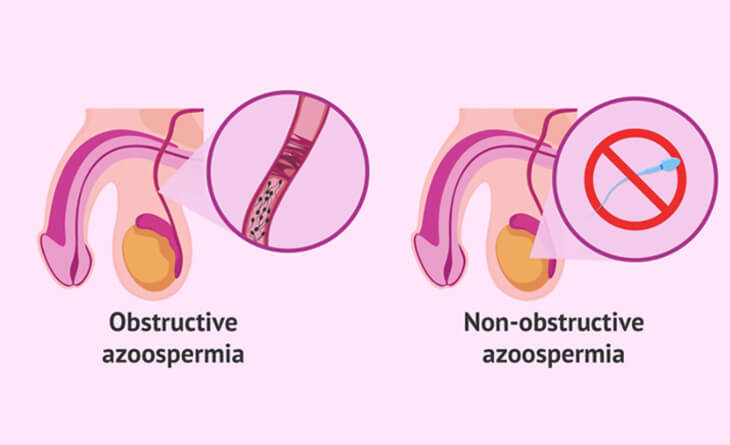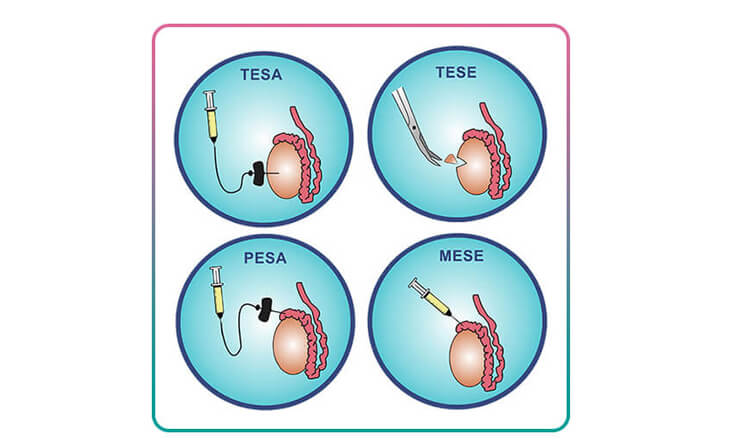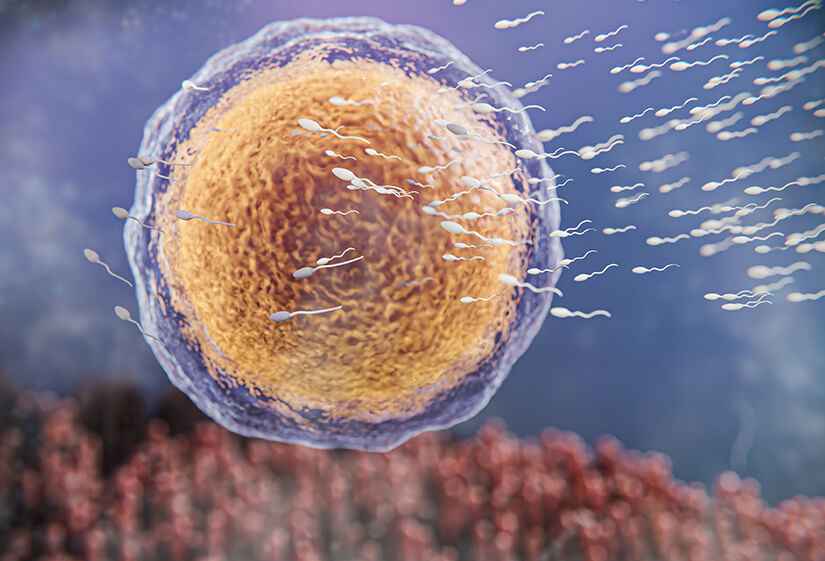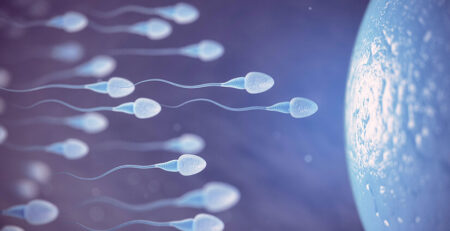Can Azoospermia be Treated?
Are you trying to conceive with no luck? The news of male infertility, especially when the diagnosis is azoospermia, the absence of sperm in the semen, can be distressing. It is understandable that men facing this might feel their hopes of fatherhood fading.
But don’t worry, guys! Medical advancement provides many possibilities for azoospermia treatment and achieving your dream of being a father.
But to get an effective and appropriate male infertility treatment, it is essential to understand the types and causes of azoospermia.
So, let’s start!
Understanding the Causes of Azoospermia
The first step in treating azoospermia is determining its cause. But how could it be possible to detect azoospermia? Simple, thorough examination, hormonal checkup and genetic testing.
Based on these tests, fertility doctors or IVF specialists in Delhi classified azoospermia into two main categories: obstructive and non-obstructive.
Obstructive Azoospermia: Obstructive azoospermia occurs when there is a blockage in the male reproductive system that prevents sperm from reaching the ejaculate. This blockage can occur anywhere along the path from the testicles to the urethra, where sperm is released during ejaculation. Do you know what causes this blockage? Let’s find out!
- Epididymis Blockages: The epididymis, a coiled tube on the back of each testicle, stores and matures sperm. If there is a blockage in this tube due to infection, inflammation, or injury, it will stop sperm from reaching the vas deferens, the main sperm exit route.
- Blockage in the Vas Deferens: A blocked vas deferens stops sperm from leaving the testicles and prevents ejaculation. Injuries, certain diseases, or congenital disabilities can cause this.
- Vasectomy: Vasectomy is a surgical procedure that involves cutting and sealing the vas deferens, the tubes that carry sperm from the testicles to the urethra. It is an effective form of contraception, and it causes obstructive azoospermia.
- Genetic Conditions: Certain rare genetic conditions, including cystic fibrosis, can impact the function of the male reproductive system, resulting in azoospermia.
Non-obstructive Azoospermia: Non-obstructive azoospermia (NOA) is another type of azoospermia where a man’s testicles produce no sperm or very few sperm, making it difficult for him to conceive a child naturally. Let’s see what causes it.
- Y Chromosome Microdeletions: Deletion of Y chromosome in specific regions can disrupt important genes involved in sperm production.
- Karyotype Abnormalities: These chromosomal abnormalities involve changes in the number or structure of chromosomes. For example, in Klinefelter syndrome, there is an extra X chromosome; these can also disrupt spermatogenesis.
- Hormonal Imbalance: Hormone imbalances, like hypogonadism, hyperprolactinemia, or thyroid issues, can disrupt sperm production.
- Exposure to Radiation and Toxins: Radiation from cancer treatments and medical imaging, along with toxic exposure to heavy metals, chemotherapy drugs, and industrial chemicals, can damage the delicate mechanisms of sperm production within the testicles, potentially leading to non-obstructive azoospermia.
Now, let’s find out the male infertility treatment options based on these causes.

Treatment for Obstructive Azoospermia
If you are diagnosed with obstructive azoospermia, it means your hormonal profile is ok; the issue is with ejaculation due to blockage in the tube. So, the treatment options for obstructive azoospermia will focus on extracting the sperms from the testicles or epididymis. Depending on the location of the blockage, several sperm retrieval techniques are available.
PESA (Percutaneous Epididymal Sperm Aspiration): Percutaneous Epididymal Sperm Aspiration (PESA) is a minimally invasive male infertility treatment used to retrieve sperm from the epididymis, a tube located behind the testicles where sperm mature and are stored. The procedure is performed under anesthesia so that you don’t feel any discomfort during surgery. Your doctor will insert a needle into the epididymis, and the epididymal fluid is aspirated. This fluid contains the sperm that are further used for IVF or ICSI procedures.
TESA (Testicular Sperm Aspiration): Testicular Sperm Aspiration (TESA) is similar to PESA but is used to retrieve sperm directly from the testicles. After giving anesthesia, your infertility or IVF specialist in Delhi will insert a thin needle into the testis through the scrotum to aspirate the semen. The semen sample is then given to the embryologist for further examination.
TESE (Testicular Sperm Extraction): Testicular Sperm Extraction (TESE) is a surgical procedure where a small tissue sample is removed directly from the testicles to retrieve sperm cells. It’s one of the most effective sperm retrieval techniques for men with obstructive azoospermia when other methods like PESA or TESA haven’t been successful.
The procedure is performed under local anesthesia. After putting you at ease, your infertility doctor or IVF specialist in Delhi will make a small incision in your scrotum and excise a section of testicular tissue. This tissue sample is examined under a microscope to identify and separate sperm cells.
MESA (Microsurgical Epididymal Sperm Aspiration): Microsurgical Epididymal Sperm Aspiration (MESA) is a microsurgical male infertility treatment used to collect sperm-filled fluid in men with vasal or epididymal obstructions.
After giving you anesthesia, your doctor will make a small incision in the upper scrotum to expose the epididymis. A high-powered microscope is used to visualize and select specific areas of the epididymis with the highest sperm concentration. Afterward, a fine needle or micro-knife is used to puncture the epididymal tubule and aspirate the sperm-containing fluid. This fluid is then examined to extract sperm for further procedures.
Treatment for Non-obstructive Azoospermia
If you are diagnosed with non-obstructive azoospermia, your doctor will shift their focus to male infertility treatment. For treating non-obstructive azoospermia, your doctor will find the underlying causes and address them. One of the main culprits behind non-obstructive azoospermia is hormonal imbalance. Do you know that a deficiency of certain hormones like FSH can directly decrease sperm production?
Hormonal Therapy
Now, you might be wondering how this hormonal imbalance can be corrected. The straight answer is hormone therapy. Hormone therapy with FSH and LH is an effective male infertility treatment. It can stimulate sperm production and potentially lead to sperm appearing in the ejaculate. For example, in hypogonadotropic hypogonadism, where your pituitary gland prevents you from properly stimulating sperm production, your doctor will recommend hormone supplements. These hormone supplements dramatically boost sperm production in just 3-6 months.
If you have an abnormal testosterone-to-estradiol ratio (T/E2), in which your body produces too much estradiol, then your infertility or IVF specialist in Delhi may prescribe aromatase inhibitors to improve the production and motility of sperm. Aromatase inhibitors block the enzyme aromatase, which converts testosterone to estradiol. By blocking the conversion of testosterone to estradiol, aromatase inhibitors can increase testosterone levels and potentially improve sperm production.

Surgical Treatment
While non-obstructive azoospermia can be caused by hormonal imbalances, in some cases, the testicular failure itself can disrupt hormone production. This creates patchy areas within the testes where some sperm production might still be happening.
In that case, surgical sperm retrieval techniques like TESE and Micro-TESE are used to extract the semen sample. This semen sample is examined under a microscope, and sperms are separated to use in IVF.
Lifestyle Modification
Certain lifestyle factors like obesity, excessive alcohol consumption, and smoking can negatively affect sperm production. However, making some important lifestyle modifications and adopting a few good habits can make a big difference.
- Eat a balanced diet rich in fruits, vegetables, whole grains, and lean protein and limit processed food, sugary drinks, and unhealthy fats to get nutrients that are essential for sperm production and motility.
- Obesity can negatively impact hormonal balance, and a perfect hormonal balance is important for sperm production. For this, aim for at least 150 minutes of moderate-intensity exercise per week, such as brisk walking, swimming, or cycling. Losing a small amount of weight can improve sperm parameters.
- Lack of sleep can cause hormonal imbalances and interfere with sperm production. So, get quality sleep for at least 7-8 hours.
- Excessive stress can increase the level of cortisol, which can interfere with hormone levels, interrupting sperm production. Therefore, it is essential to manage your stress level. You can practice stress management techniques like meditation, yoga, or deep breathing exercises.
- Say a big no to smoking because smoking damages the sperm’s DNA and reduces sperm motility.
- Excessive alcohol intake can decrease sperm production and quality. Therefore, limit or stop alcohol consumption.
- Do you know overheating the testicles can reduce sperm motility or even reduce sperm production? Therefore, avoid tight-fitting clothes, hot tubs, and saunas and putting the laptop over the testicles for a long time.
Adopting these good lifestyle habits can potentially improve sperm health and support the effectiveness of other male infertility treatment options.
Conclusion!
Azospermia can be a challenging diagnosis, but thanks to medical advancement. With a proper diagnosis and male infertility treatment, fatherhood remains a possibility for many men. All you have to do is consult a qualified fertility doctor to receive a personalized diagnosis and discuss the most suitable male infertility treatment options.
If you are dealing with azoospermia and looking for an effective treatment, schedule your appointment with Dr Rhythm Gupta now and achieve your dream of being a father.




